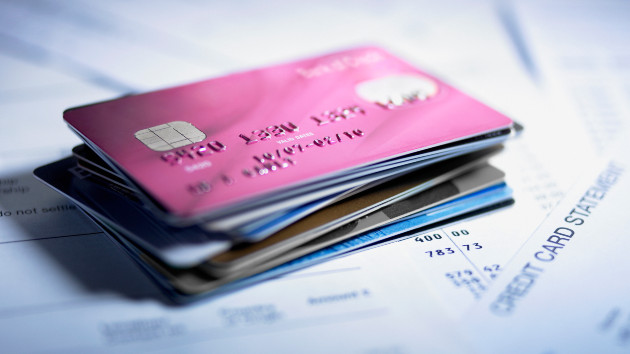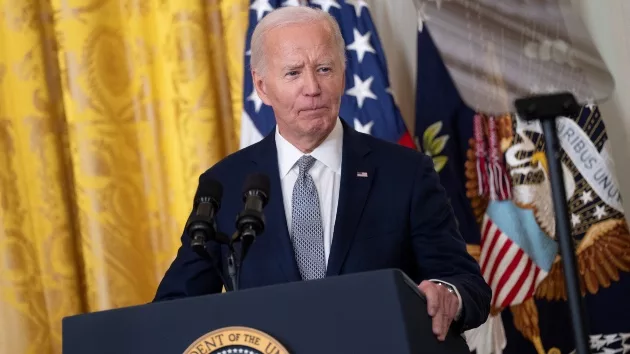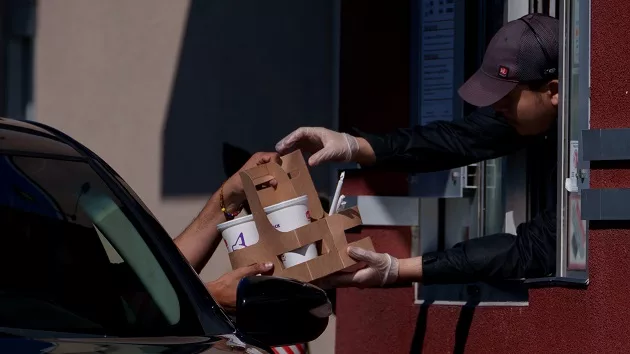
(NEW YORK) — U.S. consumer credit card debt has jumped to nearly $1 trillion, the Federal Reserve Bank of New York said on Thursday.
Credit card balances increased more than $60 billion over the three months ending in December, lifting the total amount of U.S. credit card debt to an all-time high of $986 billion, the report found.
The skyrocketing credit card balance has coincided with an increase in the interest rates paid on such debt, crunching household budgets as high inflation eats away at the savings that many amassed during the pandemic.
The average credit card interest rate offered in the U.S. over the last three months of 2022 stood at 21.6%, according to WalletHub, a jump from about 18% a year prior. An aggressive series of interest rate hikes imposed by the Federal Reserve has caused the jump in credit card rates.
Overall, total household debt increased over the last three months of 2022, jumping 2.4% to nearly $17 trillion, the New York Fed found.
The record credit card debt sounds an alarm about the health of U.S. borrowers despite a booming job market that boasts the lowest unemployment rate in more than 50 years, Wilbert van der Klaauw, an economic research adviser at the New York Fed, said in a statement.
“Although historically low unemployment has kept consumer’s financial footing generally strong, stubbornly high prices and climbing interest rates may be testing some borrowers’ ability to repay their debts,” van der Klaauw said.
The average credit card user carried a balance of $5,805 over the last three months of 2022, research firm TransUnion found. The figure marked an 11% increase from the previous year.
The Fed earlier this month imposed the latest in a series of borrowing cost increases as it tries to slash price hikes by slowing the economy and choking off demand.
Inflation has fallen significantly from a summer peak but is more than triple the Federal Reserve’s target of 2%.
Despite some indicators that suggest waning consumer strength, retail sales surged in January, according to government data released on Wednesday. U.S. retail sales jumped 3% in January compared to a month prior, exceeding the 2% increase expected by forecasters surveyed by Bloomberg.
Retail sales had fallen in December, ending the typically busy holiday shopping season with a whimper.
Consumer prices rose 6.4% in January compared to a year ago, easing slightly but still elevated.
“A lot of people may not have enough income coming in to support day-to-day expenses, so it lands on the credit card,” Ted Rossman, a senior analyst at Bankrate.com who focuses on the credit card industry, previously told ABC News. “That becomes a very persistent cycle of debt, unfortunately.”
Copyright © 2023, ABC Audio. All rights reserved.







